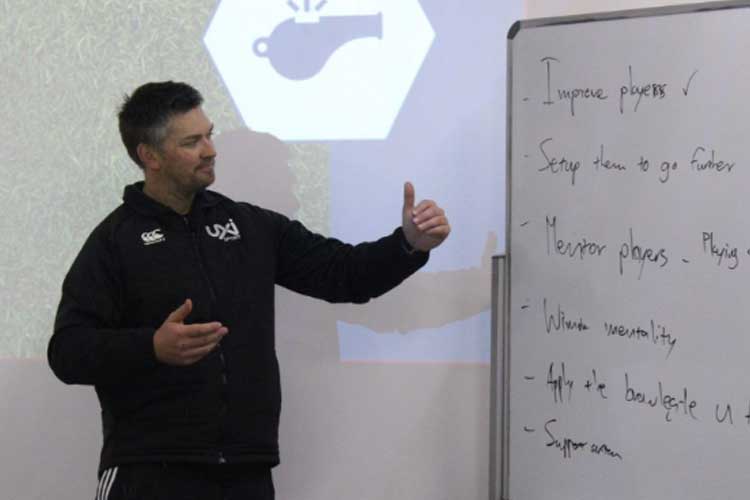The goal of a high-performance rugby program is to help players attain elite levels by improving their conditioning, abilities, and strategic awareness of the game. Intense physical training, skill development, mental conditioning, and expert coaching are all combined in these programs. A high-performance program gives players the framework and tools they need to thrive in competitive rugby, whether they are seasoned players hoping to progress or aspiring pros.
Key Takeaways
- High-performance rugby programs focus on physical conditioning, technical skills, and tactical understanding.
- Mental resilience and psychological training play a crucial role in player success.
- Personalized training plans and regular assessments ensure targeted growth and improvement.
Core Components of a High-Performance Rugby Programme
Physical Conditioning and Strength Training
Physical conditioning is the cornerstone of any high-performance rugby program. Rugby requires a lot of strength, agility, and endurance due to its intensity. Typical programs consist of:
- Strength training for power and stability
- Cardiovascular conditioning for endurance during long games
- Agility drills to enhance reaction time and mobility
- Speed training to build acceleration on the field
Skill Development and Technical Training
The greatest rugby players are experts at the fundamentals. A high-performance program’s core component is skill development, which focuses on enhancing methods like
- Passing and catching for accuracy and fluidity
- Tackling techniques to ensure safe and effective defense
- Kicking for precision, whether for field goals or positioning
- Scrummaging and rucking to build cohesion and effectiveness in team play
Tactical and Strategic Training
Every movement has a strategy that must be understood. Tactical training is a component of high-performance programs that helps players gain strategic insights.
- Game analysis sessions to study opponents and learn from past games
- Set-piece practice to refine formations like scrums, lineouts, and mauls
- Playbook sessions where players learn specific strategies and plays for different scenarios
Mental Conditioning and Psychological Resilience
Building Mental Resilience
Mental preparedness is just as important in high-performance sports as physical preparedness. Rugby programs incorporate mental conditioning to give players the fortitude to overcome obstacles. This could involve:
- Visualization techniques to mentally prepare for high-pressure situations
- Goal-setting workshops to encourage players to focus on progressive improvement
- Resilience training to help players bounce back from setbacks on and off the field
Developing Focus and Decision-Making
In rugby, having the ability to act quickly under pressure is essential. High-performance rugby programs place a strong emphasis on honing these abilities by:
- Mindfulness exercises to enhance concentration and presence
- High-pressure scenarios in practice to simulate game-time conditions
- Analytical training to improve decision-making and adaptability during fast-paced plays
Personalization and Performance Analysis
Individualized Training Plans
Individualized training is one advantage of a high-performance program. Since every athlete has different talents and areas for growth, customized strategies make sure they can focus on the things that are most important to them.
Performance Tracking and Feedback
High-performance rugby programs include regular performance evaluations. Coaches may ensure each player’s consistent progress by giving tailored feedback and modifying training as necessary through the use of GPS tracking, video analysis, and other techniques.
Frequently Asked Questions
What does a high-performance rugby programme consist of?
A thorough program consists of mental toughness, skill and tactical training, physical conditioning, and customized strategies for player development.
Do high-performance programs include academic or career support?
Yes, as holistic development include life outside of rugby, many programs also provide academic support or instruction in life skills.
How long do high-performance rugby programs last?
Depending on the athlete’s age, skill level, and objectives, most programs last anywhere from a few months to several years.
Reference
- World Rugby High-Performance Unit
- National Rugby Development Program Guidelines
- Studies on athletic conditioning and mental resilience in high-performance sports
- HFPA




